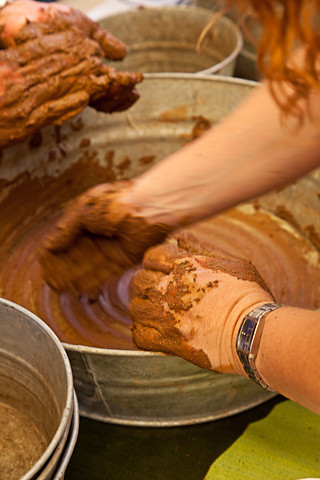Bring your young ones into the garden with you so they will learn about organic methods. Gardening helps your children learn about biological processes and serves as a social activity that helps the family grow closer while eating healthier.
You are now prepared to embark on the journey of making a garden that is organic and healthy. Your timing could not be better. The tips below can help you begin your organic garden.
Using aspirin water will help your plants fight diseases. An aspirin and a half, combined with a couple of gallons of water, will do amazing things for your plants. Next, coat the plant with the aspirin mixture by spraying it on the leaves. Try spraying your plants with this around every three weeks.
Aspirin water will strengthen your plants against diseases. Your plants can benefit from a solution you can make by dissolving one and one-half aspirins into a couple of gallons of water. All you need to do is spray the plants with the solution in order to battle common ailments. Use this method every three weeks.
If you’re growing indoor organic plants, you should ensure that you think about how much light is available for them. If your house or apartment doesn’t get a lot of natural light, one option is to grow something that only requires medium or low light. If you cannot achieve success merely through plant selection, consider using artificial light sources.
If you’re working to build a sustainable organic garden, try leaving a portion of your garden untouched so that the wildlife will be able to thrive. One side effect of this is that where animals thrive, so do birds and insects that help nurture and pollinate plants, which will increase the quality of your garden.
Make sure you consider adequate spacing when planting your garden, so that each plant is given room enough to grow and flourish. Plants take up quite a bit of space as they grow, and it’s easy to underestimate just how much. Space is vital for your plants not only due to their literal physical size requirements but also because of how much room your garden needs for air circulation. Plan your garden accordingly, and make sure the right distance is between the seeds.
To keep your houseplants happy during the day, your thermostat should be set anywhere between 65 and 75 degrees. The temperature needs to be this warm so they are able to grow. Another option is the use heat lamps that will protect your organic plants.
Use an old laundry basket to bring your fresh produce in from the garden. The basket strains the produce as well as stores it while you are going through your garden. Doing this allows you to both rinse and drain your fresh produce.
Learn to work efficiently. Don’t waste your time by looking all over for your tools. Organize the tools you will need before you head to the garden, and put every item away when you finish your work. A good way to keep your tools at hand is to buy a tool belt or utility pants with many large pockets.
Too much water can be harmful to your plants because the excess water can hinder the ability of the roots to acquire nutrients from the soil. Check the weather for the next couple of days to see if you actually need to water your plants. Make your decision about watering dependent on the weather.
Pine Needles
Try raising organic garlic. Plant individual cloves of garlic in the early spring or fall in moist, well-drained soil. Plant them approximately 4 inches apart at a depth of 1 or 2 inches beneath the surface of the soil with the pointed end facing upward. As the garlic shoots grow, you can snip them and use them for cooking. The garlic will be matured when the green tops start drying out and turning brown. To harden the garlic’s skin after picking, dry the it in the sunlight for a few days. Store them in a cool, dry location. You can store them as loose bulbs, or fasten them together into bunches.
Pine is a wonderful mulch so do not discard the idea. Some plants are more acidic, and prefer soil that contains higher acidic levels. Pine needles are an excellent form of mulch for these types of plants. Sprinkle the pine needles over your beds. As the needles decompose, they add to the acid level in the soil.
For perennials, you can quickly get a plot developed in a short amount of time. Cut beneath the turf using a spade, then flip it over. Finish by covering the entire area using several inches worth of wood chips. Once a couple of weeks have passed, you can then dig into the new garden bed and plant some of your favorite perennials.
Spacing is an important factor to consider when planting your garden. Many people don’t realize exactly how much space a plant needs when it grows. Failure to provide adequate room will restrict growth because it forces plants to compete for valuable nutrients and oxygen. If necessary, use a ruler to measure the distance between each plant.
You can grow many different plants in your garden. If you choose plants that require acid to grow properly, use mulch. These types of plants should be mulched with a thick layer of pine needles around fall every year. When pine needles break down, they fortify the soil with their natural acids.
Hopefully these tips have helped to prepare you for having an organic garden. If you already knew about organic gardening, you should be an expert by now. These tips should have helped you get started growing a lovely organic garden.
Keep the soil healthy for optimum plant health so they can combat disease, and even destruction caused by insects. Pests may still be present, but they will not inflict damage on your plants.
